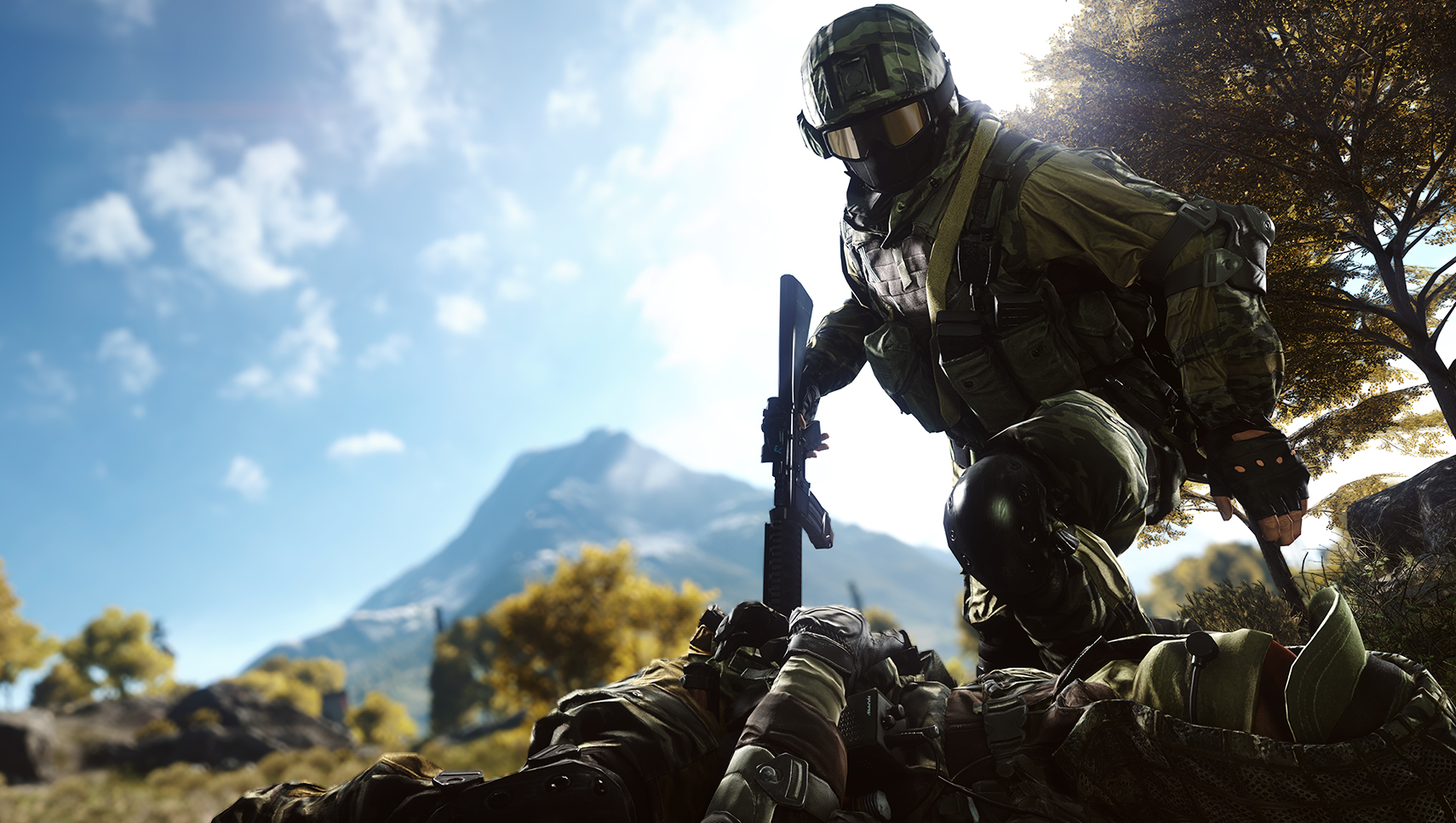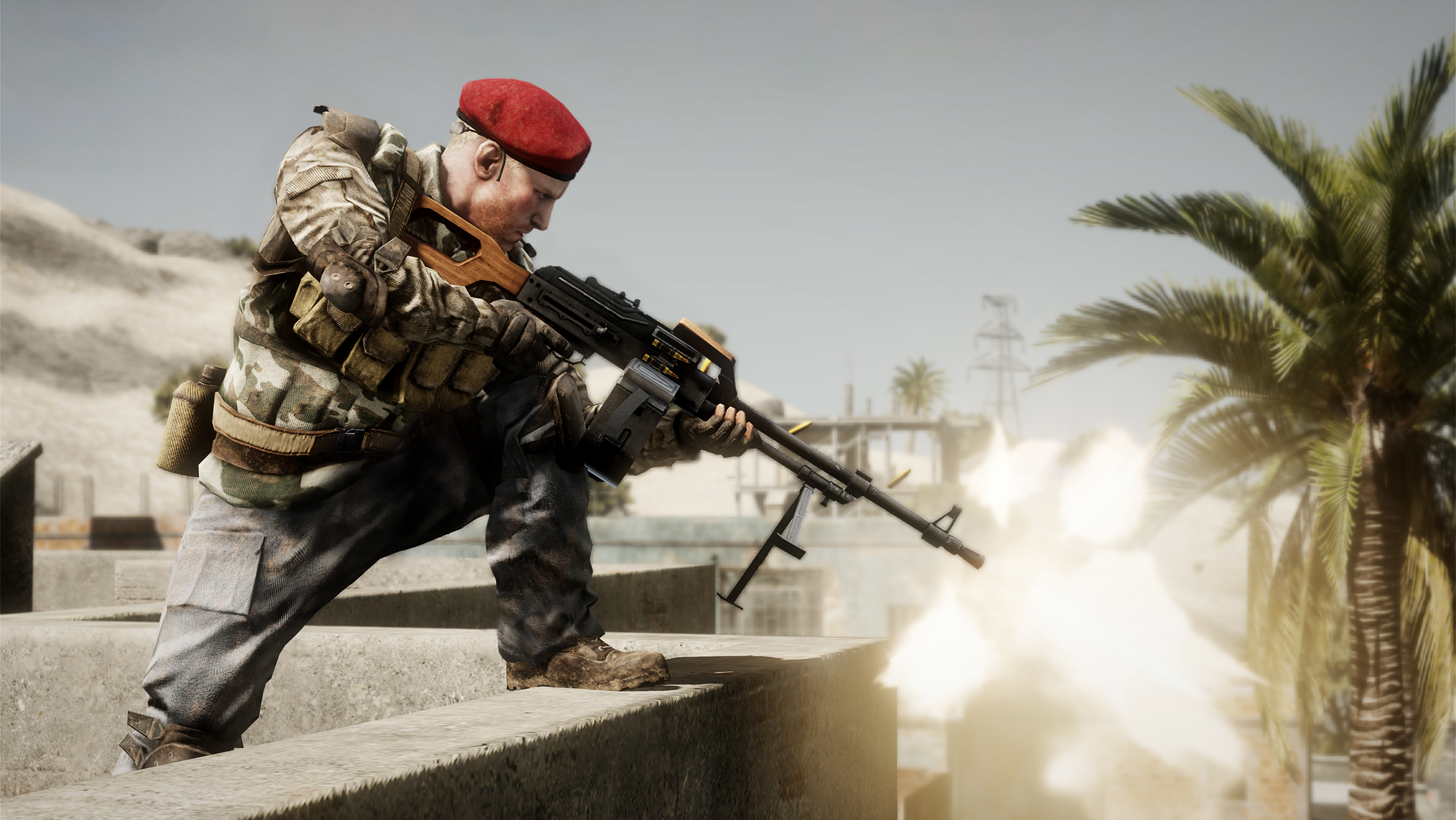Defibrillating soldiers in Battlefield

In Why I Love, PC Gamer writers pick an aspect of PC gaming that they love and write about why it's brilliant. Today, Phil praises Battlefield's defibrillator.
There's something about medics in class-based shooters that fascinates me. Not the mechanics, so much, but the psychology. Doctors can be an obstinate bunch at the best of times, but a game's medic will often have active disdain for his patients. Take Team Fortress 2. For the Medic, the other players are a bunch of braying moron babies—unable to take even the smallest bit of punishment without crying to him for help. To the rest of the team, the Medic is never where he's needed. Why won't he heal, dammit? You're clearly on fire. Why won't he heel, dammit? You're the team's only Heavy. Why did he uber you, a Soldier, just as you started to reload? And why in the hell is is he leaving the server in the face of your entirely reasonable demands?
Battlefield medics—or medically-focused Assault players in later games—have a slightly different, albeit equally unhealthy way of viewing their team. I've always liked the Battlefield games for awarding points in a way that encourages objective-focused team play. That does, however, result in some unintended consequences. For the Battlefield medic, other soldiers aren't 'players,' or 'valued teammates.' They're mobile score deposits that can be mined for great reward.
Battlefield: Bad Company 2's Rush mode was glorious for this, especially if you were on the defending team. I played hundreds of hours of Bad Company 2, and firmly believe it to be the highpoint of the Battlefield series. A lot of that can be attributed to the joy of chucking a well-placed medikit near an M-Com station and watching the points roll in. It's a glorious feeling, as multiple squads pile into a building to provide a constant score tick from the escalating battle. I topped many a scoreboard by profiting off of these virtual sieges.
I do worry that every other medic is sincere and altruistic—that I'm the asshole—but I don't think that's the case. Exhibit A: the defibrillator. It's my favourite device in any Battlefield game, but the way DICE has tweaked its implementation over the series suggests that all medics are awful people. With Battlefield 3, DICE added the option to reject revives. Now, you can tell the game that no, thank you very much, you don't want to be alive any more. There are a number of reasons why this might be the case, but the main one is that medics can't be trusted to not revive you at an unsafe moment. If given the chance, they will trap you in a nightmarish death cycle of constant expiration and revival. If you've ever played on a high-ticket Operation Metro server, you've seen this in action. Opportunistic medics pick over corpses like vultures, before backing off to let the newly revived stumble back to the slaughter. It's macabre.

It's infuriating for the other players—and as mercenary as I am, I try to be a responsible reviver—but I do understand the temptation. There's the points, obviously. But also something else. Defibrillating is brilliant. Switch to the defibrillator and you lose short-term agency over the flow of the battle. In a map full of bastards with guns, you're giving up the ability to affect your immediate situation in pursuit of a long-term advantage.
It looks dramatic, too. I've defibrillated hundreds (probably thousands) of times, but my overriding memory of the act is one of desperate against-all-odds heroism. I'm charging through incoming fire as the downed teammate inches closer to the respawn, diving in at the last second, and jolting him with a few hundred volts. DICE attempts to imbue every aspect of Battlefield's multiplayer with emergent cinematic spectacle. The thrill of a successful revive is probably as close as they've come to unreservedly pulling that off. The drama is heightened by the fact that defibrillation only works if you've got the soldier's body in view. You have to look away from the battle, momentarily giving up your situational awareness. It extends the moment, past the act and to the recovery. The soldier has been revived. Now what? You have to instantaneously re-adjust to the current situation, running out of danger as you switch back to your weapon, or—if you're absurdly lucky—reacting in time to an enemy presence and defibrillating them in the head. That's fun too.
I know that an unwanted revive at an inopportune time can be infuriating, but I ask that you please understand. It's not that the medic wanted to inconvenience you; it's just that they're having a really, really good time.
The biggest gaming news, reviews and hardware deals
Keep up to date with the most important stories and the best deals, as picked by the PC Gamer team.

Phil has been writing for PC Gamer for nearly a decade, starting out as a freelance writer covering everything from free games to MMOs. He eventually joined full-time as a news writer, before moving to the magazine to review immersive sims, RPGs and Hitman games. Now he leads PC Gamer's UK team, but still sometimes finds the time to write about his ongoing obsessions with Destiny 2, GTA Online and Apex Legends. When he's not levelling up battle passes, he's checking out the latest tactics game or dipping back into Guild Wars 2. He's largely responsible for the whole Tub Geralt thing, but still isn't sorry.

